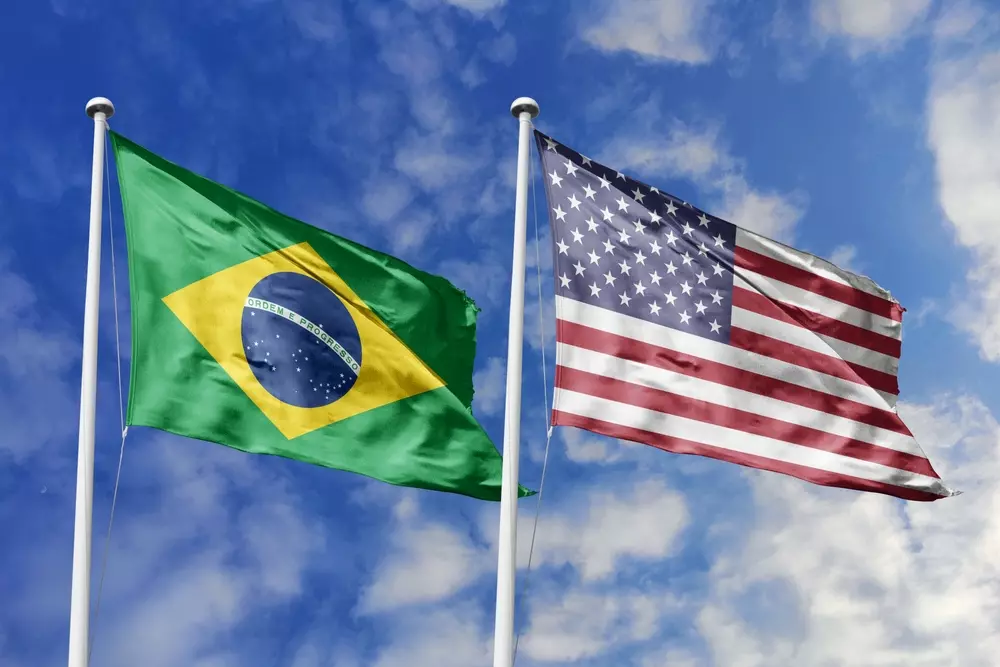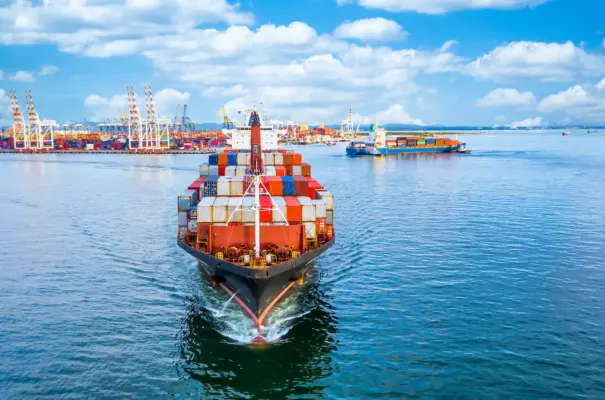Ever since U.S. President Donald Trump announced 50% tariffs on Brazilian product exports to the country, the livestock sector has been challenged to find strategies to mitigate the resulting impact. The primary strategy is diversification, meaning seeking alternative markets to the North American one for exporting its meat products.
Fernando Henrique Iglesias, an analyst at Safras & Mercados, stated in a report published on the G1 Agro website that meatpackers will need to redirect their products to other destinations. “The good news is that there are more than 100 countries buying meat from Brazil,” the analyst observed, highlighting Vietnam as an example, which has resumed purchases of Brazilian beef.
Mexico, Egypt, Canada, Chile, and the United Arab Emirates are also potential markets to absorb the supply, although there are specific requirements. While the U.S. imports 12% of the beef exported by Brazil to be used in hamburgers and other processed foods, the Chinese – the largest buyers – prefer forequarter cuts.
The competitiveness of Brazilian beef in the international market is another mitigating factor, as shown in an article published on the Globo Rural website. According to the text, the Brazilian Nelore Breeders Association (ANCB) contends that the international market needs Brazilian meat, which is sold at lower prices than its main competitors.
Relation with the U.S was flourishing
Brazil is the largest exporter of beef to the U.S., surpassing competitors like Australia, New Zealand, and Uruguay, while the North American country is the second-largest importing market for Brazilian meat, trailing only China. According to Abiec data, 30% of the beef produced in Brazil is exported, and 70% remains for the domestic market.
Before the tariffs, the livestock sector’s relations with the U.S. were flourishing: from January to June 2025, Brazilian shipments to that country grew by 113% compared to the first half of 2024, totaling 181.5 thousand tons, according to the Brazilian Beef Exporters Association (ABIEC). Revenue reached US$1 billion, a 102% increase. Now, everything is uncertain. “It’s a major impact for the supply chain, which cannot immediately readjust. Of course, there are other destinations for the products, but none with the same characteristics as the American market, with these specific cuts and volume demands,” argues the Association’s president, Roberto Perosa.
According to him, Brazil could lose up to US$1 billion this year if the American surtax is maintained. In an article published on the Exame website, the executive reported that the sector’s expectation was for Brazil to export 400,000 tons of meat to the U.S. in 2025, almost double the 220,000 tons shipped in 2024, but the volume could be significantly lower with the new tariff landscape, threatening to “break the golden decade of Brazilian agribusiness,” as reported by Forbes. According to the article, based on figures from the Ministry of Agriculture, Livestock, and Food Supply (MAPA), US$81.79 billion were exported by Brazilian agribusiness to the U.S. between 2015 and 2024. The livestock sector recorded the largest growth: from US$290 million in 2015 to US$1.41 billion in 2024.
With the new tariff policy, the Confederation of Agriculture and Livestock of Brazil (CNA) estimates that agribusiness will cease to export US$5.8 billion to the U.S. this year. In an article on the Compre Rural website, the Agricultural Parliamentary Front (FPA) – a multi-party coalition aimed at supporting Brazilian agribusiness – estimates losses of US$1.3 billion for the sector in 2025, plus US$3 billion annually from 2026 onwards, if the steep tariffs are maintained. These projections are based on calculations by the Brazilian Association of Meatpackers (Abrafrigo). Given this scenario, there is a risk of mass unemployment in the production chain, which spans from livestock farmers and meatpackers to transporters and input suppliers.
Tensions between governments could be overcome

ACNB President Victor Paulo Silva Miranda said he believes that the tension between the Lula and Trump administrations will be overcome in a relatively short period, which would prevent significant damage to exports and price imbalances for cattle farmers. The executive further argues that the U.S. cattle herd is shrinking, which tends to increase demand for imported meat by that country.
To prevent a collapse in the agricultural sector, the Brazilian government has been planning a series of initiatives. Until now, the main bet was an open channel between Brazil’s Minister of Finance, Fernando Haddad, and U.S. Treasury Secretary Scott Bessent, but the meeting was canceled in mid-August, which the executive attributed to “an articulation by the far-right” to undermine negotiations.
Among the measures adopted by the government is a formal consultation with the World Trade Organization (WTO), arguing that the steep tariffs are inconsistent with international norms, as reported by O Globo. Lula is also considering approaching BRICS leaders, especially India and China, to discuss the possibility of a joint response to the steep tariffs. The government is trying to move to ensure that meat and coffee, for example, remain outside the scope of the steep tariffs, given the precedent of a list of about 700 products excluded from the surtax, such as airplanes, cellulose, orange juice, and oil.
On another front, the government is crafting an emergency plan to grant credit to the companies most impacted by the tariff. A R$30 billion credit line for companies affected by the steep tariffs, with financing contingent on job retention, has already been announced. Furthermore, an increase in the purchase of items, including perishables like meat, by governmental institutions is planned. According to BBC News, while Lula and Trump have not yet sat down for talks, discussions about possible negotiations with the U.S. are in the hands of Vice President Geraldo Alckmin, who is also the Minister of Development, Industry, Trade, and Services, and Foreign Minister Mauro Vieira.




